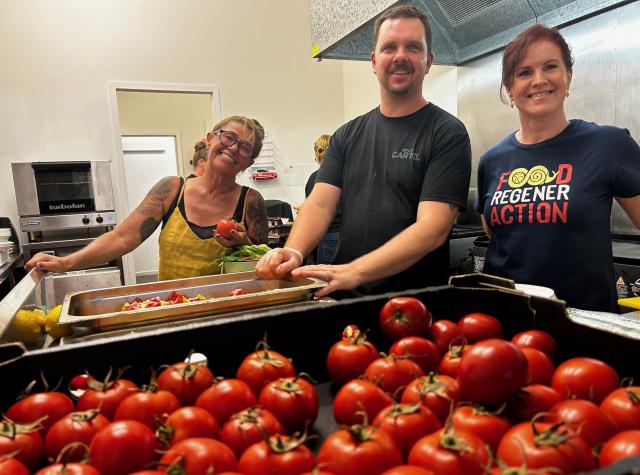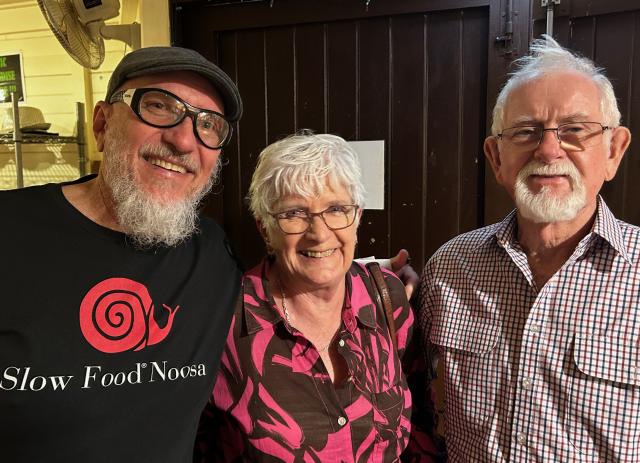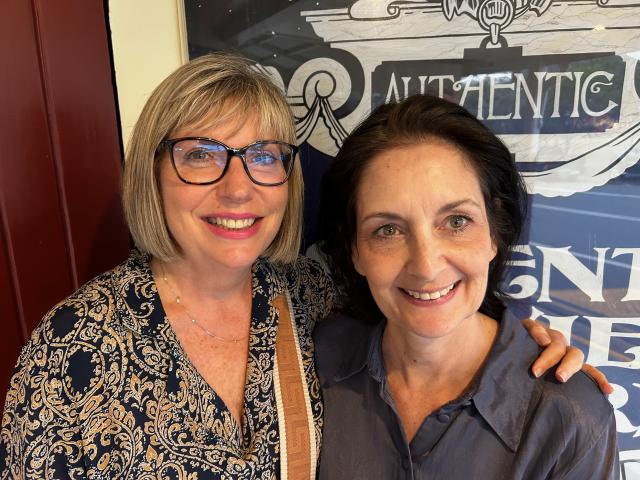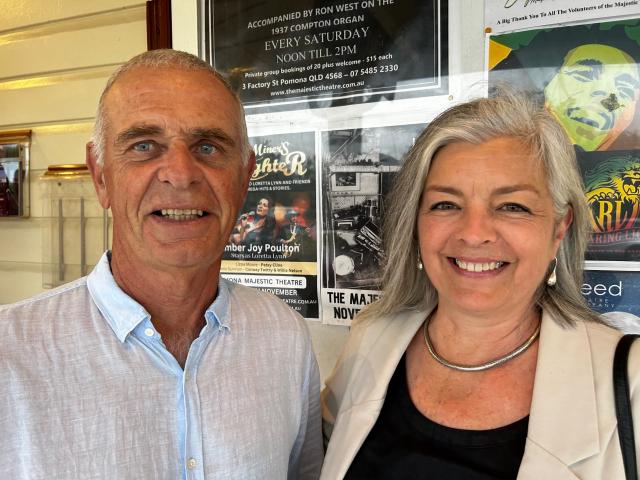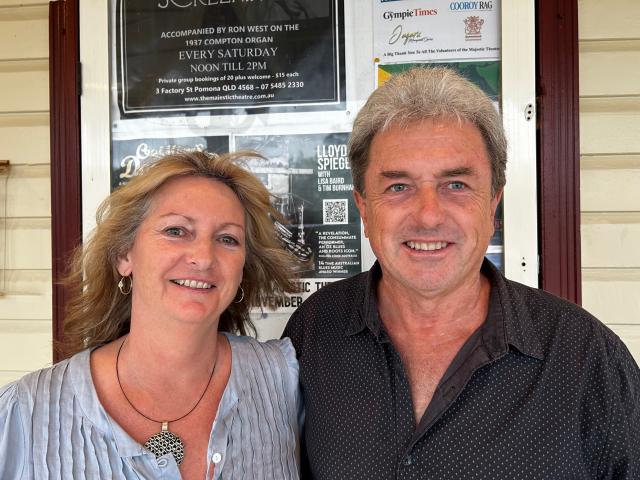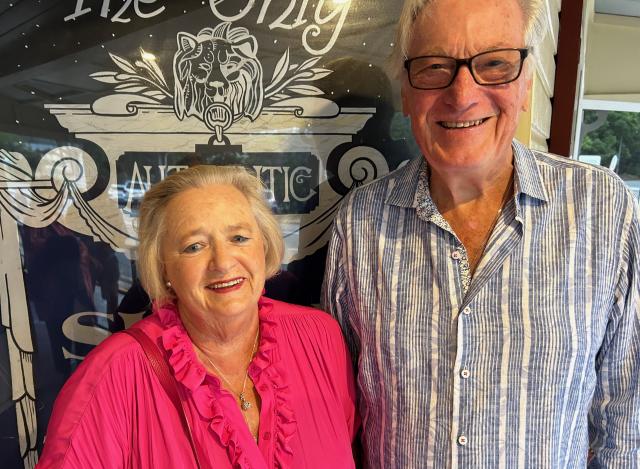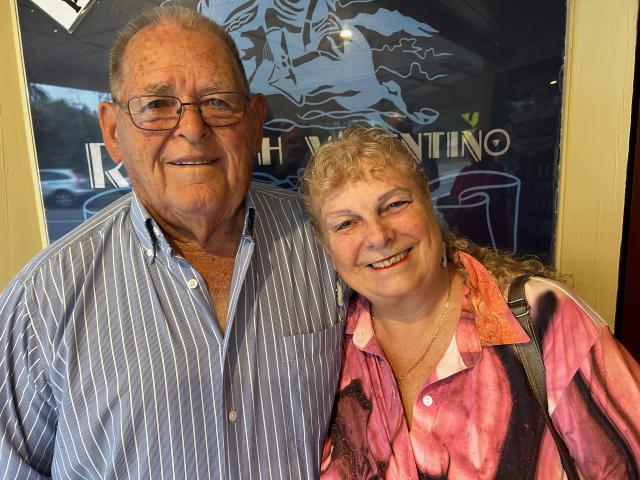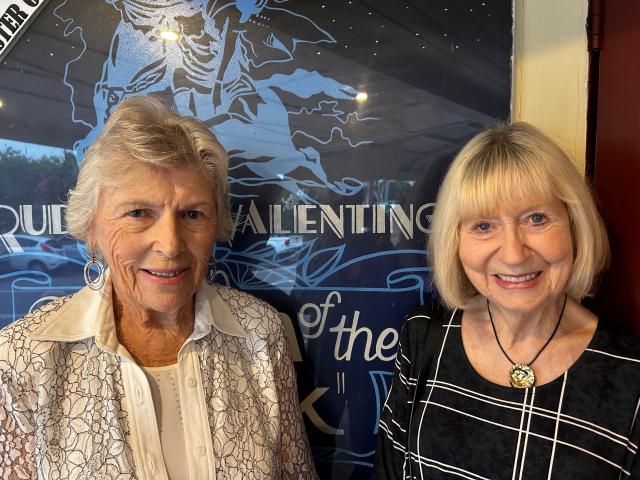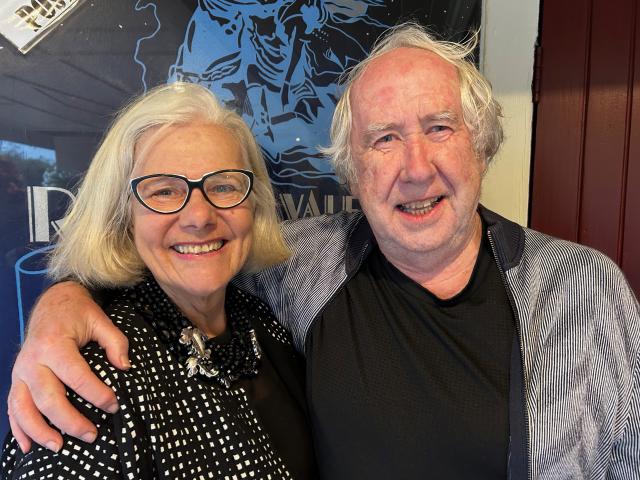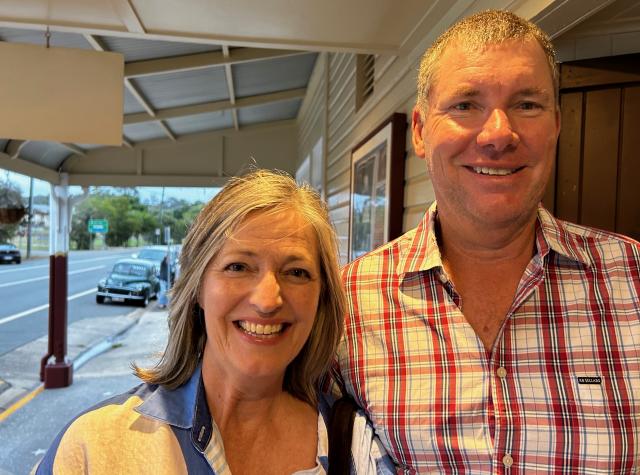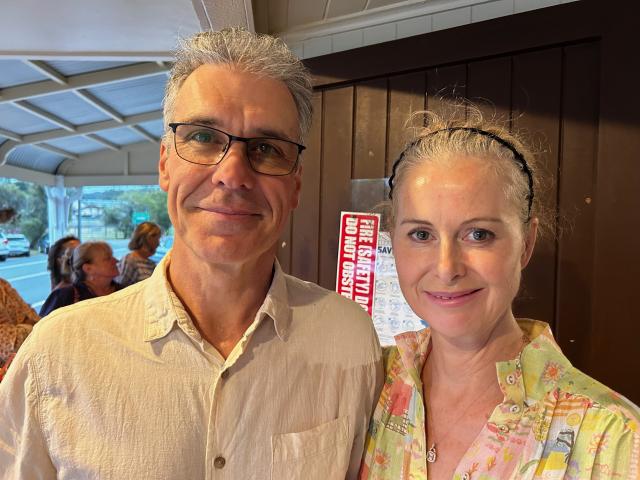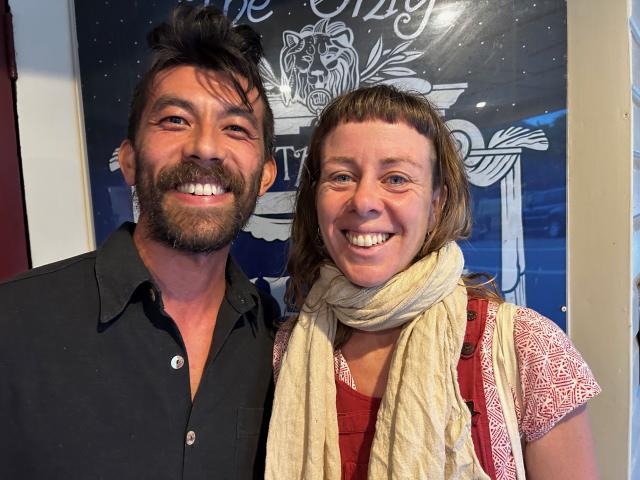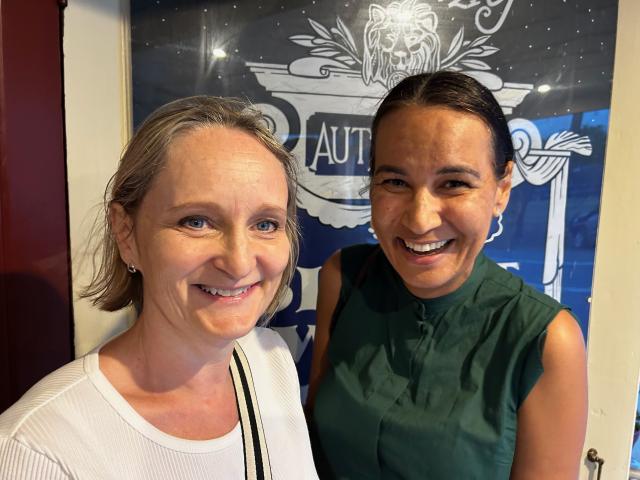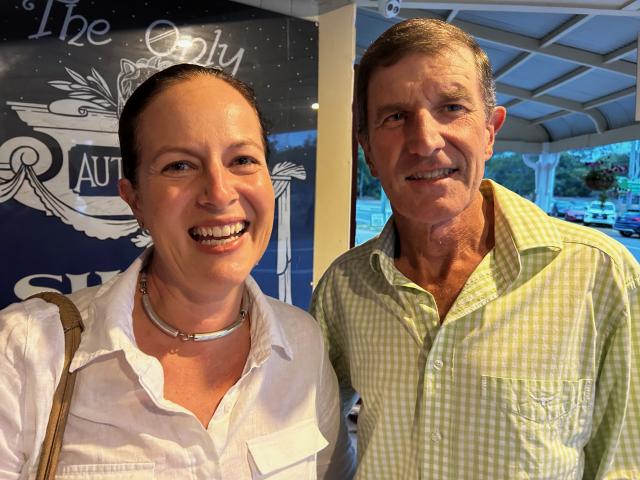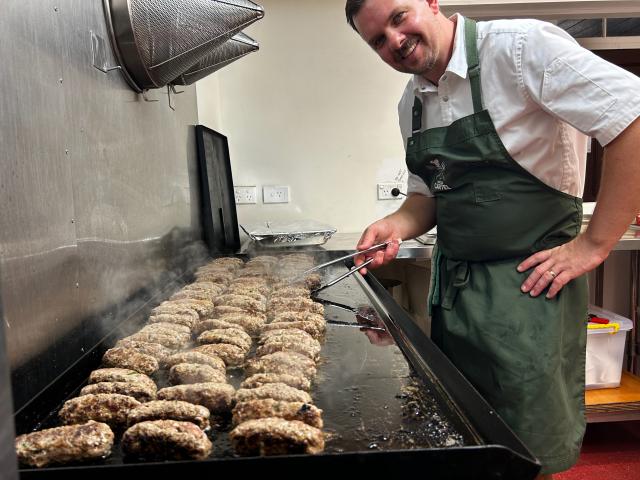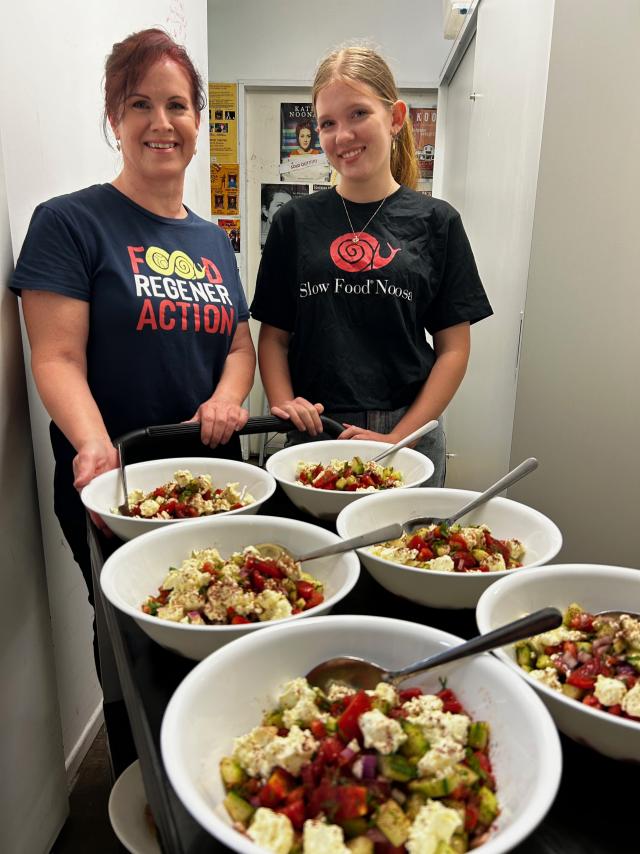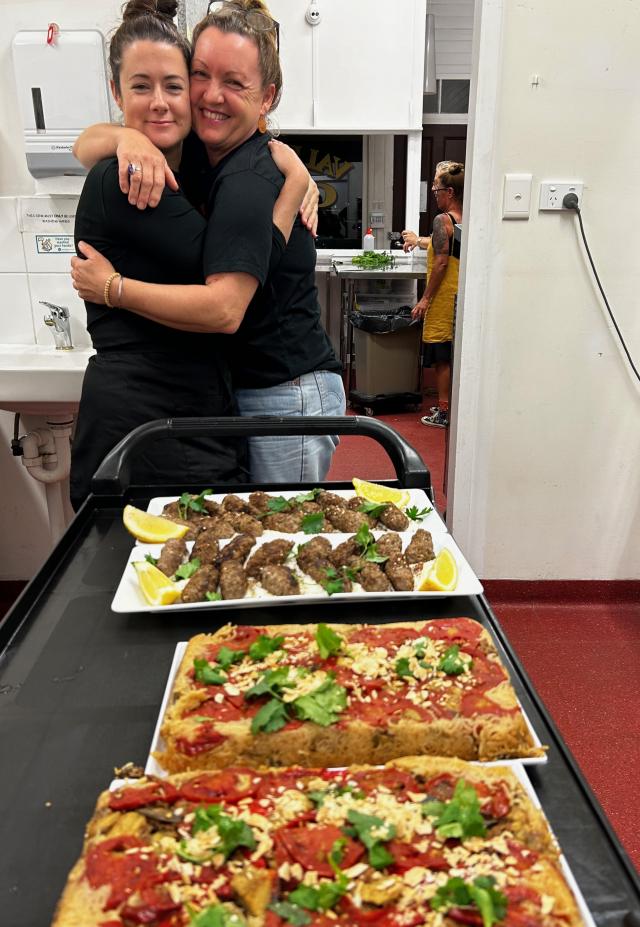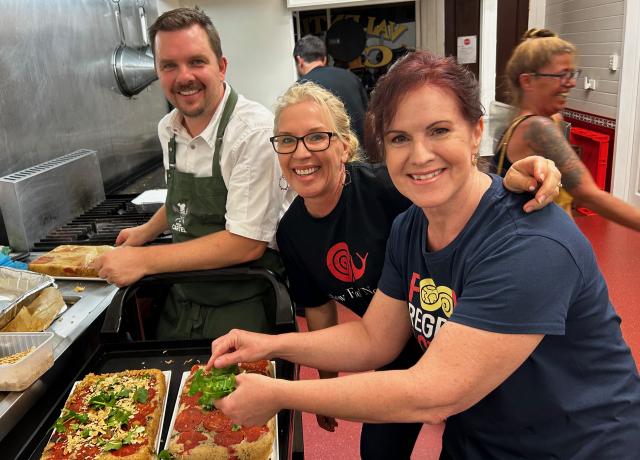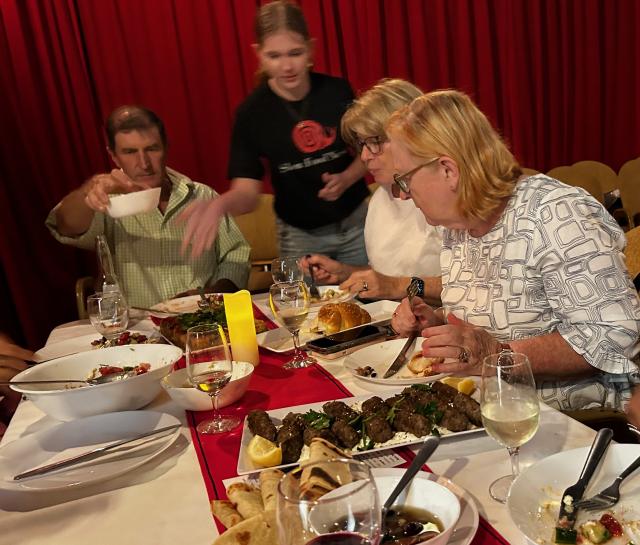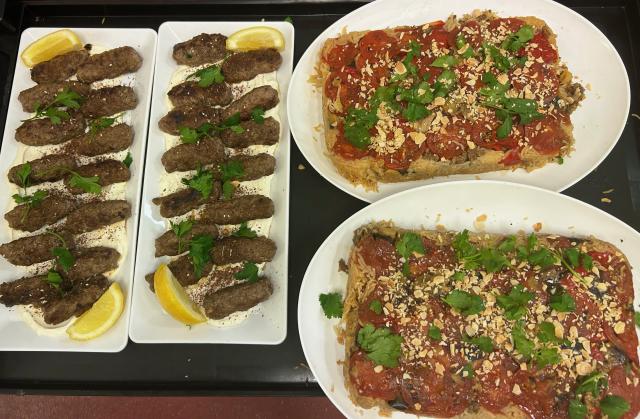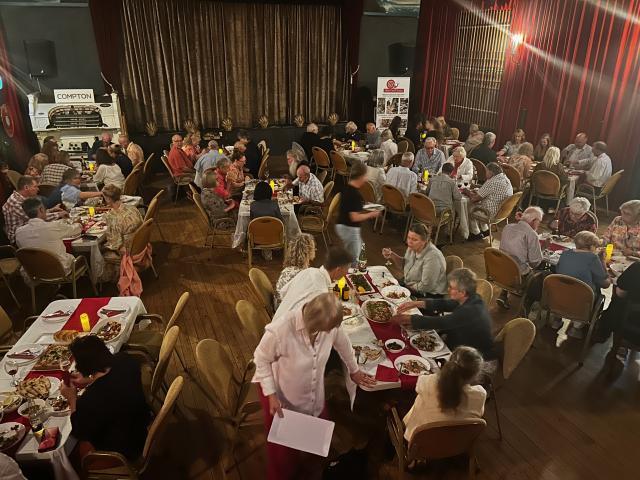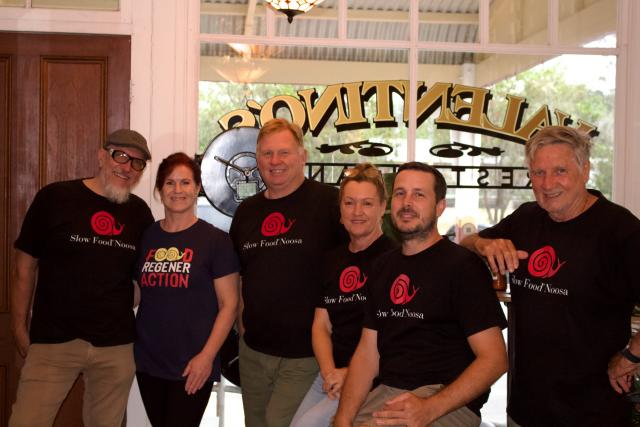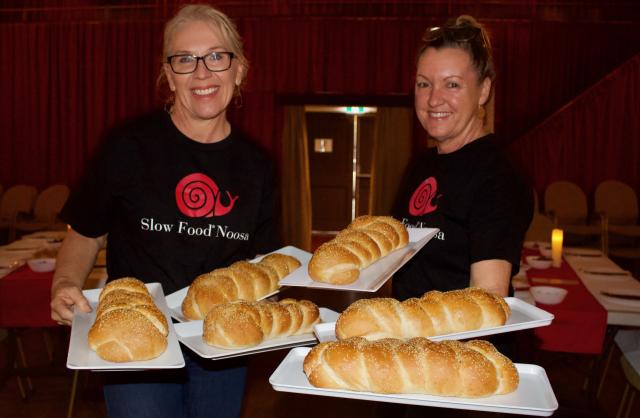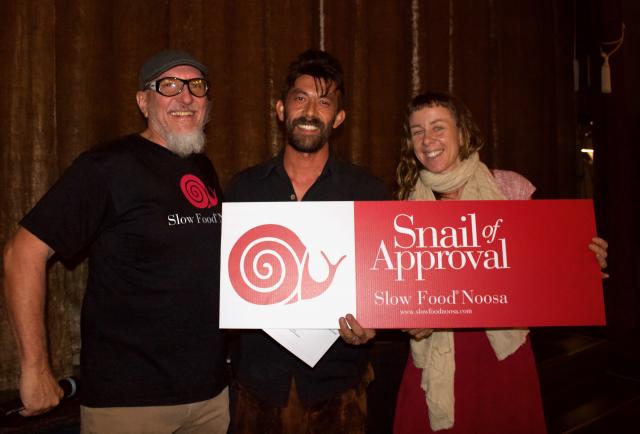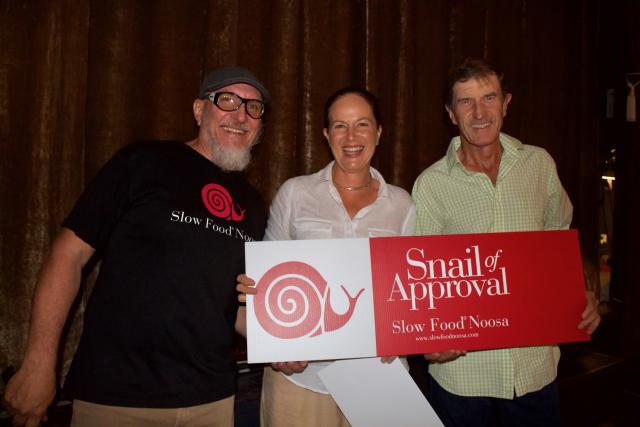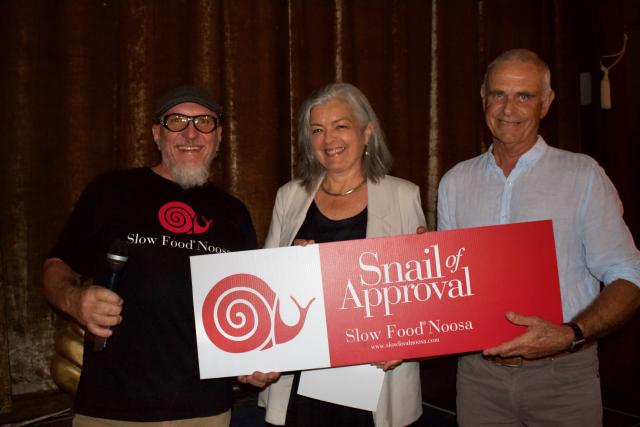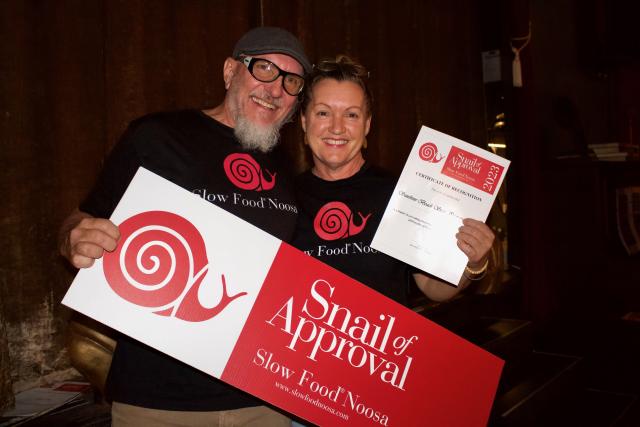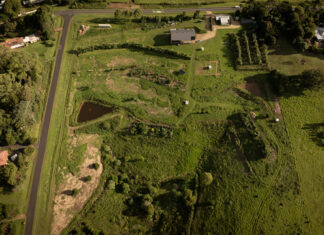Whether it be a celebration or a time of adversity, coming together around the table to enjoy food is often the answer. ERLE LEVEY was at Slow Food’s film and food night that was highlighted by the shared table concept.
“When people get together with food, it might not be the answer… but it’s a good way to start.’’
With the words of the acclaimed writer Anthony Bourdain as an introduction, the second Slow Food Noosa event to combine film and food was highly successful.
At a time when tensions are high in the Middle East, it was wonderful to be able to find some common ground – a film about food.
Screened at the historic Majestic Theatre in Pomona with just a handful of tickets short of a full house, Breaking Bread was about how two cultures can find common ground despite the political and cultural divisions.
It showed the perfect meal may be more about the people you share it with.
The shared table concept blended perfectly with the film, Breaking Bread, and highlighted the way people from different backgrounds and cultures can come together around the dining table.
Josh Smallwood of Noosa Cartel led the team of Slow Food committee members and friends in presenting the meal.
The movie followed Dr Nof Atamna-Ismaeel – the first Muslim Arab to win Israel’s MasterChef – who was on a quest to make social change through food.
The menu for the night was inspired by the movie, taking the best of Israeli and Palestinian food and melding them together for a truly memorable occasion.
Slow Food committee members felt it was good to be able to put on such an event and that so many people took delight in the style of food, the shared table experience and the film.
This is what Slow Food tries to encourage – people getting together to celebrate good food, conversation and fellowship within the community.
Slow Food Noosa Committee member Andy Coates said the film proved so relevant in today’s news regarding wars and conflicts.
“It showed how food brings people together but it was so much more layered than that.
“It’s not just what you eat … it’s where you eat.
“This was a wonderful team effort.’’
The menu saw produce sourced from within the region where possible, another philosophy that Slow Food endorses.
Josh Smallwood said that having seen the movie, it was easy to be inspired about the menu.
“Creating dishes that reminded me of classic Middle Eastern cuisine and flavours, but also trying something new inspired from the movie.
“I tried to create a shared menu that would start conversation around the table and bring people together.’’
Challah bread was sourced from Noosaville Bakery and the Taboon flat bread from Rick’s Bakery.
There was mixed marinated olives, hummus and baba ganoush.
Shirazi salad included Noosa Red tomatoes and feta from Woombye Cheese.
Eastwell Farms provided beef for the koftas which were served with tahini yoghurt and zaatar, while Piggy in the Middle provided the lamb for the Maqluba (upside down Palestinian rice) served with tomato and peppers.
Yoghurt for the koftas was from Kenilworth Dairies.
Dessert was a great hit – Malabi milk puddings, with Cooloola Berries strawberries, rosewater and pistachios.
The evening showed that no matter what the circumstance – whether it be a time of celebration or a time to face challenges, food can hold the fabric of society together in lots of ways.
New Snails at the table
The evening was highlighted by presentations of Snail of Approval certification to producers and providers showing the variety of food the region is becoming known for.
On the night, awards were presented to Shaw Kamada-Laws and Lenni Green of Nourishing Wholefoods at Coolum Beach, to Penny and Reece Kennedy of Ceres Valley Farm and Sunshine Organics at Brooloo, to Dave and Julie Moffatt of Mary Valley Yuzu at Imbil, and to Di Seels representing Sunshine Beach State Primary School that has a very active Snail Kids program.
Other new Snail of Approval applicants will be presented with their certification at future events, including the annual dinner at Park and Cove restaurant at Outrigger Noosa Resort in February.
These include Scott and Adele Frew at Belli Beef, Rainbow Beach Meats, Damian and Jane Nielsen at WindRush Estate and Farm at Kandanga, and Noosa Community Garden.
Slow Food Noosa president Jason Lewis highlighted the enthusiasm within the community that has been evident this year.
“Producers and artisans have been reaching out with new and exciting products, and looking for help to make those first connections.
“Existing Snail of Approval recipients have been networking and collaborating with fellow Snails.
“It has also been about identifying Snails that have been ready to offer an ear to listen and maybe a helping hand for those who have been hit in recent times through floods, covid and economic trends.
“The amount of new people interested in starting a small-scale grass-roots business and making connections with Slow Food Noosa as a starting point is something we have never seen happen to this extent before.’’
NEW SNAILS WITH PURPOSE
Penny and Reece Kennedy of Sunshine Organics (Ceres Valley Farm) at Brooloo recently and successfully evaluated their farm and associated businesses for Snail of Approval accreditation.
They are a mixed enterprise farm using regenerative farming practices. As fourth generation farmers who saw the need for change, they have an online organic fresh produce and grocery business Sunshine Organics that provides organically certified, ethical, local seasonal boxes of organic goodness from Lismore to Rockhampton using a commercial refrigerated courier which means one van, many businesses, and boxes delivered rather than many vans for many businesses.
They run beef cattle, slow-grown, heritage-breed, pasture-raised pigs, and laying chickens that follow the cattle.
Penny and Reece embrace the patterns of nature in grazing their animal movements, and do not use synthetic chemicals on the farm. This way they ensure that all inputs for animals are as natural as possible while taking into account the health of the animal and land.
A PASSION FOR LOCAL PRODUCE
Lenni Semmelink and Shaw Kamada-Laws of Nourishing Wholefoods have a passion for local food culture that supports a healthy community and environment. They make sauerkraut, kimchi and other lacto-fermented vegetables, gut tonics and hot sauces, slow cooked bone broths and also brew sparkling kombucha and water kefir.
Lenni and Shaw love food, and value the wisdom embedded in traditional food culture and craft.
For this reason they use only wholefood ingredients, no artificial chemicals, preservatives or stabilisers. Their products have short shelf lives – emphasising the value of authentic products and processes over stability and ability to mass produce and distribute.
Nourishing Wholefoods prioritises using local produce grown by people they know with aligned values around sustainability. When this isn’t possible they use organic produce sourced consistently and reliably from local producers and suppliers that is fresh and has low food miles.
When purchasing locally, they buy from local suppliers that source their produce from local growing regions. They choose to avoid GMOs, chemical additives, preservatives and stabilisers.
In line with Slow Food’s values, Nourishing Wholefoods seek to educate customers on the importance of caring for the health of themselves, their families, friends and the planet through making healthy food choices. They promote the knowledge that fermented foods are rooted in human cultures all over the world as a way to preserve food, bring together community and enjoy food, flavour and life.
Adding some zest
Dave and Julie Moffatt of Mary Valley Yuzu are growing the Asian citrus on their property at Imbil.
Yuzu is traditionally used as a food, a medicine, for cosmetics and drinks.
Yet it is famous for its extraordinary aroma; and a hot bath with floating fresh yuzu fruit is a Japanese custom.
It has long had cultural significance in Japan but in recent years has become sought after by western chefs.
There are few commercial growers in Australia and the aim is to make this special fruit available to restaurateurs and distillers in the Noosa/Sunshine Coast area.
Unlike other citrus, it crops only once a year. The fruit season starts around May and runs for five to six weeks.
The Mary Valley orchard is relatively new and small with about 300 trees.
Dave and Julie grow bio-dynamically, using approved organic sprays wherever possible.
Yuzu fruit is notoriously difficult to grow and pick. All pruning and harvesting is done by hand, not by machines.
The intention is to supply only the local area, thereby minimising food miles.
Yuzu-infused mayonnaise and olive oil is proving popular with Australia’s largest growers based in north-eastern Victoria.
Dave and Julie intend to support and promote local producers by supplying yuzu for use in their manufactured products, such as gin, citrus powders, agrumato oil (cold-pressed citrus/olive oil blends).

